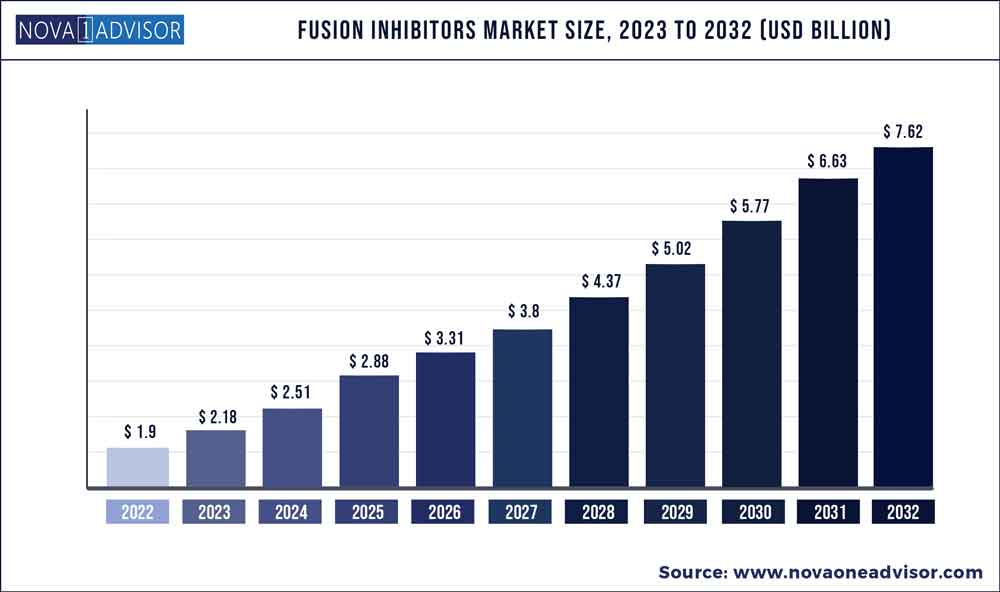The global fusion inhibitors market size accounted for USD 1.9 billion in 2022 and is estimated to achieve a market size of USD 7.62 billion by 2032 growing at a CAGR of 14.90% from 2023 to 2032.

Key Pointers:
- Based on indication, the global business has been split into HIV/AIDS and COVID-19. The COVID-19 segment is projected to account for dominant market share from 2023 to 2032.
- The segment is anticipated to expand at a higher CAGR during the forecast period.
- Based on distribution channel, the global fusion inhibitors market has been segregated into retail pharmacies, online pharmacies, and others. The retail pharmacies segment is projected to account for dominant share from 2023 to 2030.
- North America held more than 36% share in 2022.
- The market in Asia Pacific is expected to grow at a rapid pace during the forecast period.
Fusion inhibitors are also known as entry inhibitors. The initial two steps of the viral lifecycle are fusion and binding, which can be inhibited by fusion and entry inhibitors. These inhibitors work by binding to the attachment sites of the HIV virus, thereby inhibiting the fusion of HIV virus to the host cell membranes. These inhibitors disable the de novo virus infection and cell-to-cell transmission of the virus.
The prevalence of viral diseases has increased significantly across the globe in the past few years. Major viral diseases that require lifetime treatment include HIV/AIDS and chronic hepatitis virus. HIV is one of the key public health issues across the globe. An estimated 38.4 million people lived with HIV in 2021. The the global prevalence was projected to be around 1% of the adult population and about 1.5 million people became newly infected with HIV in the year.
According to UNAIDS, AIDS-related illnesses accounted for more than 650,000 deaths in 2021. Majority of the HIV infected people live in low and middle-income countries, with over 75% of them living in sub-Saharan Africa. Rise in prevalence of the disease and increase in awareness among the people have led to a rise in number of people receiving treatment. In 2018, more than 63% of the people living with HIV received treatment and over 54% of them were virally suppressed.
Governments and organizations are focusing on spreading awareness about the treatment for HIV through public education, vaccination, and effective medical support. This is likely to create demand for infusion inhibitor drugs for the effective treatment of HIV, thus accelerating market development.
Fusion inhibitors Market Segmentation
Fusion inhibitors Market Key Players And Regions

